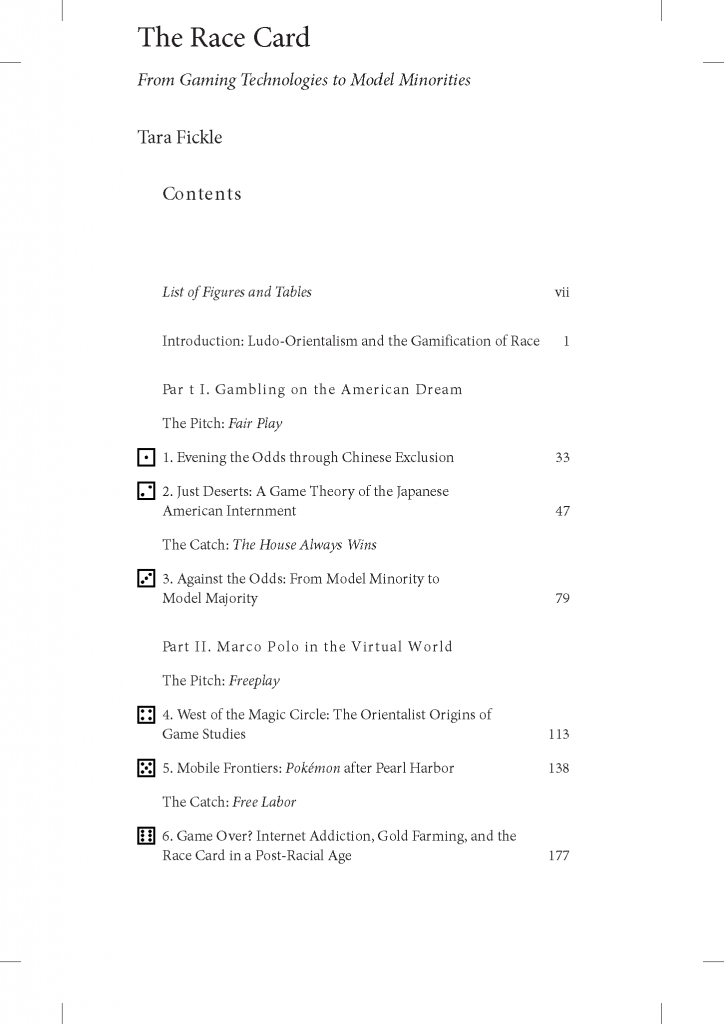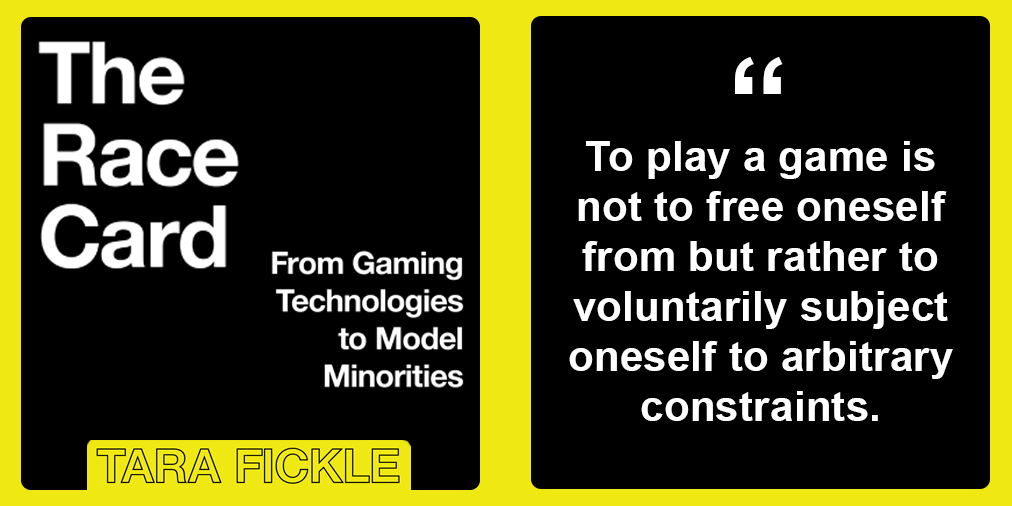As Pokémon Go reshaped our neighborhood geographies and the human flows of our cities, mapping the virtual onto lived realities, so too has gaming and game theory played a role in our contemporary understanding of race and racial formation in the United States. From the Chinese Exclusion Act and Japanese American internment to the model minority myth and the globalization of Asian labor, Tara Fickle shows how games and game theory shaped fictions of race upon which the nation relies. Drawing from a wide range of literary and critical texts, analog and digital games, journalistic accounts, marketing campaigns, and archival material, Fickle illuminates the ways Asian Americans have had to fit the roles, play the game, and follow the rules to be seen as valuable in the US.
“Revealing the mutual constitution of gaming and racialization, The Race Card’s concept of ‘ludo-Orientalism’ offers a significant new way of understanding the historical discourse of Asian exclusionism, as well as more subtle forms of post-1960s anti-Asian racism. Focusing on representations of Asian Americans as pathological players, Fickle shows how racial discourse is linked to the speculative logic of American exceptionalism.”
Colleen Lye, author of America’s Asia: Racial Reform and American Literature, 1893–1945
“Revealing the orientalist origins of game studies and locating the very tenants of game theory in Japanese internment, Tara Fickle engages racialization as game-play itself. In doing so, Fickle explodes our understanding of economic survival and success by revealing the centrality of gambling rhetoric—and a willingness for risk-taking—in the appraisal of Japanese Americans as the ultimate model minority. An original and timely intervention that at last accounts for the dominant representation of Asian Americans as both the hard-worker and the obsessed gamer.”
Wendy Hui Kyong Chun, author of Updating to Remain the Same: Habitual New Media

